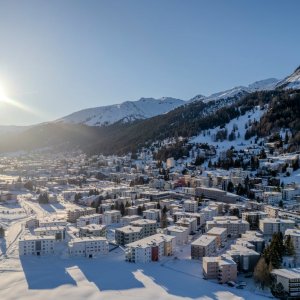Insurance Broker Supports Entrepreneurs, Spreads Knowledge

STORY INLINE POST
Q: How has the Mexican oil and gas industry’s risk profile changed over the last year and how has that impacted your current and potential client base?
A: The risk profile of our industry has not changed, since oil and gas are hydrocarbons and have explosive and flammable characteristics. Therefore, the activities concerning these are legally defined as “highly risky.” For this reason, our industry is regulated by rigid industrial and operational safety standards set by entities designed to issue such regulations, such as in the case of ASEA.
What we have noticed in the past year is a notable change in regard to the investment financial risk perspective. This has occurred in large part because of the global economic contraction due to the pandemic, which has completely shifted market dynamics. Another significant factor is that the federal administration has initiated legislative actions that have affected the legal certainty for investors. This has resulted in a temporary suspension of activities or projects for some clients, who are waiting to restructure their investment models and reduce their costs and adapt to the industry’s new political reality.
Nevertheless, many entrepreneurs who decided to carry out large investment projects in Mexico, such as those related to oil exploration and production, have a long-term vision and know that returns on investment do not occur immediately.
Q: What educational and networking initiatives are urgently needed to further unite the public and private sectors in the oil and gas industry?
A: I am wholeheartedly convinced of the importance of entrepreneurial ties with the public sector. With the creation of my “Voices of Energy” initiative, businessmen from the industry are meeting periodically with public actors from various institutions. The premise is based on establishing communication networks that transmit technical knowledge and financial risks regarding the success of energy projects. In my personal experience, I have always found that both sides of the coin have been willing and empathetic. We must continue working in a coordinated manner with associations and industry chambers, forums, congresses, seminars, universities and the media. If there is more information exchanged and a better understanding of this vast sector, it will lead to a more equitable development of the industry.
In this regard, a new project called “Energy Vision” was launched in 2021, in which I share my opinion on relevant issues within the oil and gas industry. My goal is to spread industry knowledge to all levels of society.
Q: What is your view of the idea that the industry’s overall positive curve of activity is being maintained or will return in the short term?
A: I see an industry that continues to believe in our country and entrepreneurs who fight daily to maintain their operational structures and keep their projects running. We cannot deny that there were uncertain months as the economy contracted and regulatory decisions influenced business actions. Just as in other markets, there is no set future. In life in general, change and risk are constant. Since we chose to be entrepreneurs, we risk our capital to obtain profits. If profits are threatened, the challenge is to minimize all risks and confront issues by making decisions that ensure our survival.
Our industry is essential to any country, so the scenarios presented will always be complex. To emphasize my optimism, I maintain that objectives are reached when the private sector, specialized workers and the government cooperate with oil and electrical power companies in a coordinated manner.
Q: How do the latest actions taken by SENER and PEMEX regarding the NOC’s strategy and future vision impact your perspective on the industry as an insurer?
A: The new law promoted by SENER and approved by Congress was challenged in court and, therefore, has been suspended until judges resolve the matter. However, this has not halted the signing of new contracts under the previous scheme of service contracts. After all, one thing is certain: we need crude oil to refine in Mexico or to export to the international market.
At NRGI Broker, we believe that a paralysis in the industry is the worst-case scenario because everyone loses.
Q: How will recent discoveries by both PEMEX and private companies impact the sector’s development and the NOC’s priorities for the short and medium term?
A: Our country has been a hotbed for offshore drilling and exploration since 2020. This has allowed Mexico to become a leader in offshore activity. The main drivers here are private companies committing to investment in exploration and drilling in accordance with their CNH contracts and PEMEX's strategy of assigning turnkey drilling contracts to national players. As we can see, interest in Mexico’s shallow water has remained solid despite the pandemic.
Speaking of PEMEX’s coordinated efforts with private operators, the Zama-1 field comes to mind. US-based Talos Energy, a partner of Block 7 and PEMEX, is working with SENER to determine the terms of a Unitization and Unit Operating Agreement (UUOA), based on international best practices. Currently, the parties are concluding the final definition of interest divisions regarding participation in the field and who will operate them, among other key issues. We are confident that the final agreement will benefit all parties involved, as well as Mexico.
Recent PEMEX discoveries, such as Dzimpona-1, Miztli-1EXP and Uchukil, represent potential resources of around 14.5MMBOE, representing a definite impact on Mexico’s oil reserves with high probabilities of geological success.
Our industry’s activity persists. PEMEX continues to work with large national and foreign private service providers, such as Halliburton, Schlumberger, Baker Hughes, Diavaz, Cotemar and Protexa. Therefore, NRGI Broker will continue to successfully provide the support and security that oil activities require, at both onshore and offshore oil fields.
Q: What role will the insurance sector in general, and NRGI Broker specifically, play in promoting investments and confidence in Mexico’s oil and gas industry?
A: The insurance sector provides a necessary transversal service to the oil industry, where not only brokers such as NRGI participate but also other local and international firms. Additionally, due to the retrocession mechanisms of the reinsurance contracts provided by the insurance institutions that operate in Mexico, they offer a guarantee of solvency, which is the result of a system of technical reserves that, combined with appropriate insurance management decisions by insurance companies and supervised by the regulatory authority of our industry, allows us to face any claim following an accident, whether catastrophic in nature or due to an operating accident or natural phenomena.
Therefore, the insurance sector will continue to guarantee security and solvency, supporting the performance of any private or publicly owned oil operator or company that participates in the production, extraction, distribution or sale of hydrocarbons.
NRGI Broker specializes in insurance and surety bonds for oil and gas companies. Its custom-made insurance solutions deliver coverage for upstream and midstream activities, maritime assets, construction and engineering and catastrophic risks.
























